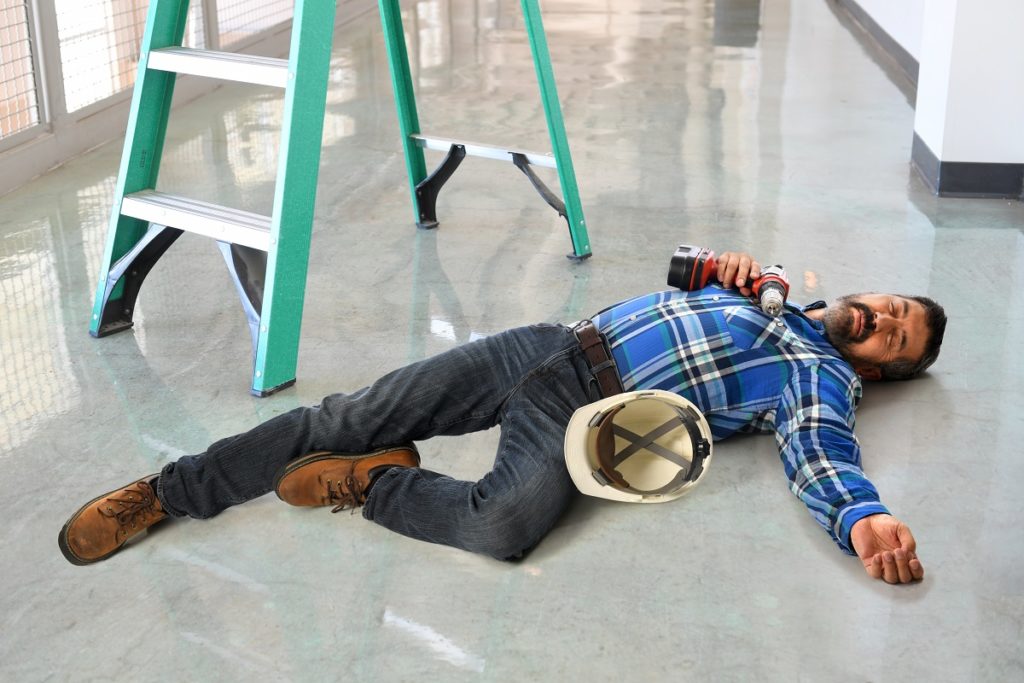Businesses in the construction and manufacturing industry are the most exposed to occupational safety violations, which is why it’s important to instill a culture of safety at every level of the organization. Mistakes and accidents happen every day, and you shouldn’t delude yourself into thinking that your business is an exception. Otherwise, you leave yourself vulnerable to workplace injuries or worse.
Protracted litigation can destroy a business, tiny ones. And if you get sued, the wheels start turning fast, thanks to process service by email. Whether you’re new to the world of occupational safety or have had lots of experience dealing with workplace accidents, you must focus on personal and workplace safety. Safety should be your primary focus; everything else comes in second.
This is especially important when working with power tools and heavy equipment. The sheer power of heavy tools and equipment can cause a lot of damage if mishandled. Power should be handled with care, which is why you should follow a few basic safety tips to ensure a safe workplace. Here are a few basic workplace safety tips to get you started.
1. Read the paperwork
Before using any power tool or equipment, your employees need to familiarize themselves with the user guide and any supplemental reading material that came with the power tool.
The user manual must include everything one needs to know about the equipment: technical specifications, operational limitations, usage instructions, and maintenance guidelines. Always check the warning labels and usage instructions to prevent accidents. It’s there for a reason.
2. Wear safety gear
Always wear personal protective gear when at the worksite and before using power tools. Every employee should have standard safety gear, including ear muffs, safety goggles, hard boots, and work gloves. Specialized tools may require further protection, so you need to make those available to your employees as well.
It’s also smart to require employees to remove anything magnetic from their bodies, such as belts and jewelry. Some power tools have a potent magnetic field that could yank metallic objects away from people. People with pacemakers or other medical implants should avoid magnetic equipment as well.
3. Keep the work area clean
The work area should be cleaned daily and kept well-lit, especially if work happens at night. Remove any possible obstructions and tripping hazards. If possible, clear the area of metallic objects when working with tools with powerful magnets.

4. Secure the work area
Never permit an animal or a child to come too close to the worksite, even if there’s no active work happening. Children may accidentally press the wrong button on a tool or equipment that could cause it to start. Never leave any machine alone, even if there is no one around. Don’t hesitate to use force when warranted. Construction and manufacturing equipment aren’t toys you can play with.
5. Watch where you use magnets
Never use a tool with a powerful magnet in a potentially explosive or flammable environment. If possible, clear the area of flammable and explosive materials. Cover anything that cannot be removed. Make sure that there is no exposed metal wiring near the power tool.
6. Do not work while intoxicated
Do not use power tools or heavy equipment while under the influence of intoxicating or mind or body-altering substances. This is not limited to only alcohol. In fact, your employees shouldn’t report for work if they have taken drugs or other substances that may impair their basic senses.
7. Keep your tools dry
Any power tool or heavy equipment shouldn’t be exposed to rain and other sources of moisture. An operational plan should be prepared ahead of time and kept on standby in case of inclement weather.
8. Switch off tools when not in use
Always switch the tool or equipment off before making adjustments to the machine’s settings and placement. Even a simple tool can be dangerous if a mistake is committed.
9. Only use tools in well-lit locations
Never operate power tools and heavy machinery in the daylight or dimly-lit spaces. When outside, be sure that there is sufficient lighting to perform your job safely and correctly.
A final word
When it comes to occupational safety, you need to assume that an accident is more of a certainty than a probability. Statistically speaking, a workplace accident is not a matter of if but when.
Of course, that doesn’t mean that you shouldn’t focus on safety. A culture of safety is the difference between an accident happening every week and every other month. A smart business covers all its bases and understands that preventing and preparing for accidents go hand in hand.

